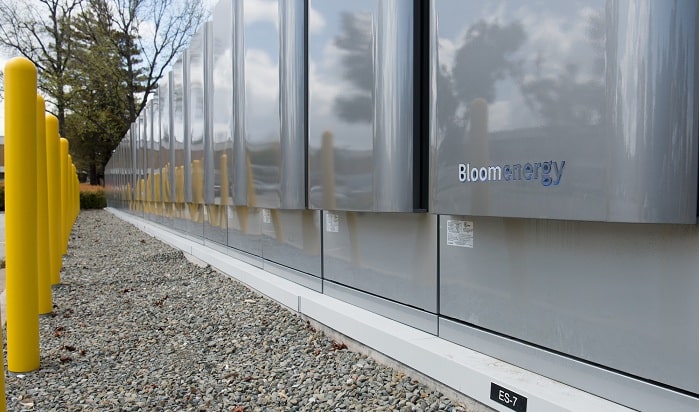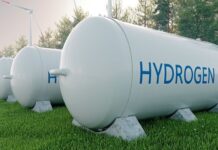Bloom Energy announced yesterday that it has successfully deployed 100 kilowatts of solid-oxide fuel cells (SOFC) powered solely by hydrogen in Ulsan, South Korea, generating zero-carbon onsite electricity. For this project, the firm had worked in collaboration with its Korean partner, SK Engineering & Construction Co., Ltd., an affiliate of SK Group. The installation was part of a pilot project announced in July 2020, when Bloom Energy revealed plans to set foot into the commercial hydrogen market, including an intended 1 MW hydrogen-powered Energy Server installation with SK E&C by 2022.
Climate experts and governments across the world are increasingly recognising hydrogen fuel cells- used to convert hydrogen into electricity through a non-combustion electrochemical process- as a key tool to achieve complete decarbonisation. Since the beginning of 2021, many announcements have been made promoting the green hydrogen sector. Adani enterprises and Italian conglomerate Maire Tecnimont are partnering to explore the development of industrial projects producing chemicals, ammonia and hydrogen in India. LONGi Green Energy, the world’s largest solar manufacturer, has set up a business unit to enter the green hydrogen market. The latest revelation has come from Vitol, the world’s biggest independent oil trader, which has announced its acquisition of a 10% equity interest in Gen2 Energy, a Norwegian green hydrogen producer, for an undisclosed sum.
Speaking about the installation of the SOFC in Ulsan, KR Sridhar, founder, chairman and CEO of Bloom Energy, said “This deployment marks a significant milestone not only for Bloom, but for the future of hydrogen-based power generation. While Bloom’s hydrogen story started more than two decades ago, it’s now the right market timing to introduce hydrogen-powered solutions and help countries meet their net-zero emissions goals. We’re proud of our partnership with SK E&C. Together, we are well-positioned to play an important role in the global hydrogen economy.”
The SOFCs use hydrogen byproduct generated by SK Advanced to create power without CO2 emissions. The hydrogen-powered fuel cells are supplied, operated and maintained by Bloom Energy. Upon completion of the pilot project, Bloom Energy’s hydrogen SOFCs will support South Korea’s Changwon RE100 initiative, as well as many other projects. The RE100 is a global renewable energy initiative led by the Climate Group to accelerate the move toward zero-carbon electricity grids. As reported in November 2020, Bloom Energy and SK E&C won a competitive bid for the Changwon RE100 to supply Bloom Energy’s hydrogen-powered SOFCs and hydrogen electrolyzers to an industrial complex there.
Expressing his faith in the Bloom Energy’s “state-of-the-art hydrogen fuel cell”, Jason Ahn, CEO of SK E&C, said that it represents “the pinnacle of power generation efficiency and safety” which will “allow us to provide clean electricity that will help Korea reach carbon neutrality by 2050.” He added that the company is looks forward to playing a leading role in the SK Group’s eco-friendly business expansion, as well as the Korean government’s Green New Deal and carbon neutrality policy.
It is noteworthy that Bloom Energy intends to supply its solid-oxide electrolyzer cells (SOEC), which are designed to produce green hydrogen via solar and battery, to South Korea in 2022 as part of the RE100 project. The green hydrogen produced by the SOEC, which is created through electrolysis by converting water and renewable electricity into hydrogen without carbon emissions, will be used to power the hydrogen SOFC.









































